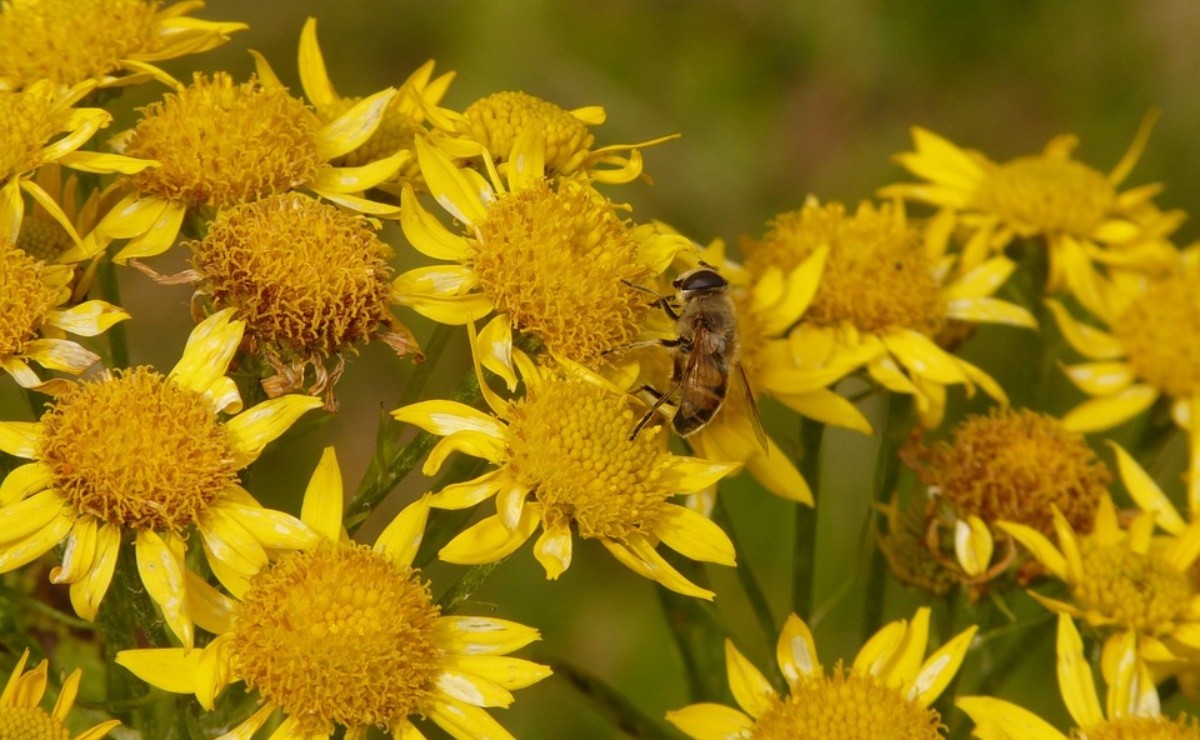
This plant is widely used as an anti-inflammatory, thanks to research done by Mexicans, arnica has been found to be effective against colon cancer
Mexican researchers discovered that arnica, a plant widely used as an anti-inflammatory , has high efficacy against colon cancer cells, the fourth most frequent in the world with some 700,000 annual deaths, revealed this Saturday the National Autonomous University of Mexico (UNAM).
Researchers have found that derivatives of Mexican arnica ("Heterotheca inuloides") have a toxic effect on cancer cells, indicated the UNAM on the occasion of the World Day Against Colon Cancer, which is commemorated this March 31.
The research is being carried out by Daniela Araiza, a doctor in Biomedical Sciences from the department of Biomacromolecules and Guillermo Delgado, from the department of Natural Products, both at the Institute of Chemistry, UNAM specified.

"Taking into account that this disease can be promoted by chronic inflammation of the intestine, we are looking for molecules that prevent inflammation," explained Araiza in a statement released by UNAM.
The doctor explained that the referred study analyzes the effect that these arnica derivatives have at a "transductional and metabolic level on rectal adenocarcinoma cells."
It is intended that these molecules "target" tumor cells, he explained, detailing that current treatments with surgeries, radiation and chemotherapies have side effects by affecting healthy and cancer cells.
This type of cancer is characterized by the uncontrolled growth of cells in any of the portions of the colon or in the rectum.
It can start as a benign tumor called an "adenomatous polyp" and turn cancerous over time. Statistics from the Institute of Cancerology of Mexico and the Institute of Public Health, point out that 95% of these cancers start in the glands that produce the mucus that protects the interior of the colon and rectum, the so-called adenocarcinoma.
"It is not known with certainty what causes it, but it is closely related to lifestyle, with genetic mutations or alterations in metabolism," explained Dr. Araiza.
Colon cancer occurs in equal proportions in men and women; people who are overweight or obese, with little physical activity, a diet low in fiber and high in fat, meats and processed carbohydrates, he indicated.
Its symptoms are changes in defecation – diarrhea, constipation, thinner stools, rectal bleeding, dark stools, colic, abdominal pain, weakness and fatigue, a persistent feeling of needing to defecate, the UNAM noted.
Araiza said that it should be considered if patients have inflammatory bowel diseases and family antecedents and called people over 50 years of age who have these symptoms to be reviewed periodically.
"If patients are diagnosed early, the recovery rate is very high," added the researcher.
The Mexican arnica ("Heterotheca inuloides") is less toxic than its European counterpart ("Arnica montana") and is widely used in Mexico as it is anti-inflammatory, disinfectant, analgesic and combats respiratory diseases.